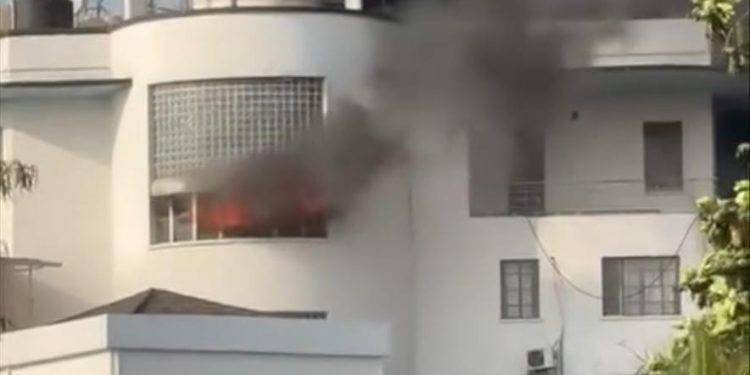By Rev. Ing. Paul C Saffa
Freetown has seen too many fires—houses reduced to ashes, lives lost, and livelihoods destroyed. The painful truth is that many of these incidents could have been prevented if we had taken electrical safety more seriously.
- Substandard Electrical Materials.
Let us start with the quality of electrical products flooding our markets. Most of what is available are substandard imports—cheap Chinese materials without proper safety standards.
Unlike certified products with fuses or internal breakers to cut off power during a surge, these keep carrying current until something catches fire. Moreover, what bothers me is an institution called ITS, which receives taxes from importers to ensure these materials meet safety requirements. However, word on the street is that they do not even have the equipment or technology to test what is coming in. If that is true, what exactly are they doing with all that money? Just collecting taxes without protecting us?
- Overloaded Extensions and Misused Sockets
Then there are our habits. People plug five or six appliances into a single extension because it has multiple slots, forgetting that each extension has a capacity, not just space. So you find someone plugging in a kettle, an iron, a rice cooker, and a deep freezer into one poor extension and then act surprised when it melts or sparks. We treat electricity like guesswork—but this is science, and when you abuse it, the consequences are real.
- Old or Worn-Out Cables
Electrical cables do not last forever. The insulation wears out over time, especially in a place like Freetown, where the air is salty and humid. Wires crack, become exposed, and the short circuit risk increases. It is recommended that households check or replace their wiring every 10 to 15 years, especially in older buildings that have not been updated. Many of us are living in time bombs without realizing it.
- Rodents as Fire Hazards
Another quiet but real danger is rats. These little guys chew through cables, strip off the insulation, and when two exposed wires touch, that is enough to start a fire—especially in places like ceiling spaces where no one checks until it is too late. It sounds small, but it has caused massive damage.
5.Poor Electrical Workmanship
Even if you buy good materials, if an untrained or unqualified person does the work, the result is the same—danger. Too many people hire “quacks” to do electrical work because they charge less. These people have no certification, formal training, or understanding of safety codes. Loose wires, poorly joined connections, and overloaded circuits are common results; all it takes is one spark to turn it into a disaster.
This is not just a technical issue but about life and death. It is about institutions like ITS being held accountable for doing their jobs. It is about educating consumers and knowing that safety is not something to negotiate. It is about a government that needs to move beyond policies on paper to enforcement on the ground. Moreover, it is about us, the people, taking responsibility for our homes, businesses, and lives. Because fire does not care who is right or wrong—it just burns.
Rev. Ing. Paul Charles Saffa
About the Author: Rev. Ing. Paul Charles Saffa has been in the Electricity sector since 2013, served as Deputy Director in the Ministry of Energy and was assigned to provide Policy oversight at EDSA while working as Focal Persons on some Energy Projects for the World Bank, EU, and the AfDB. He is currently the Country Manager for TRANSCO CLSG – a West Africa Power Pool.











